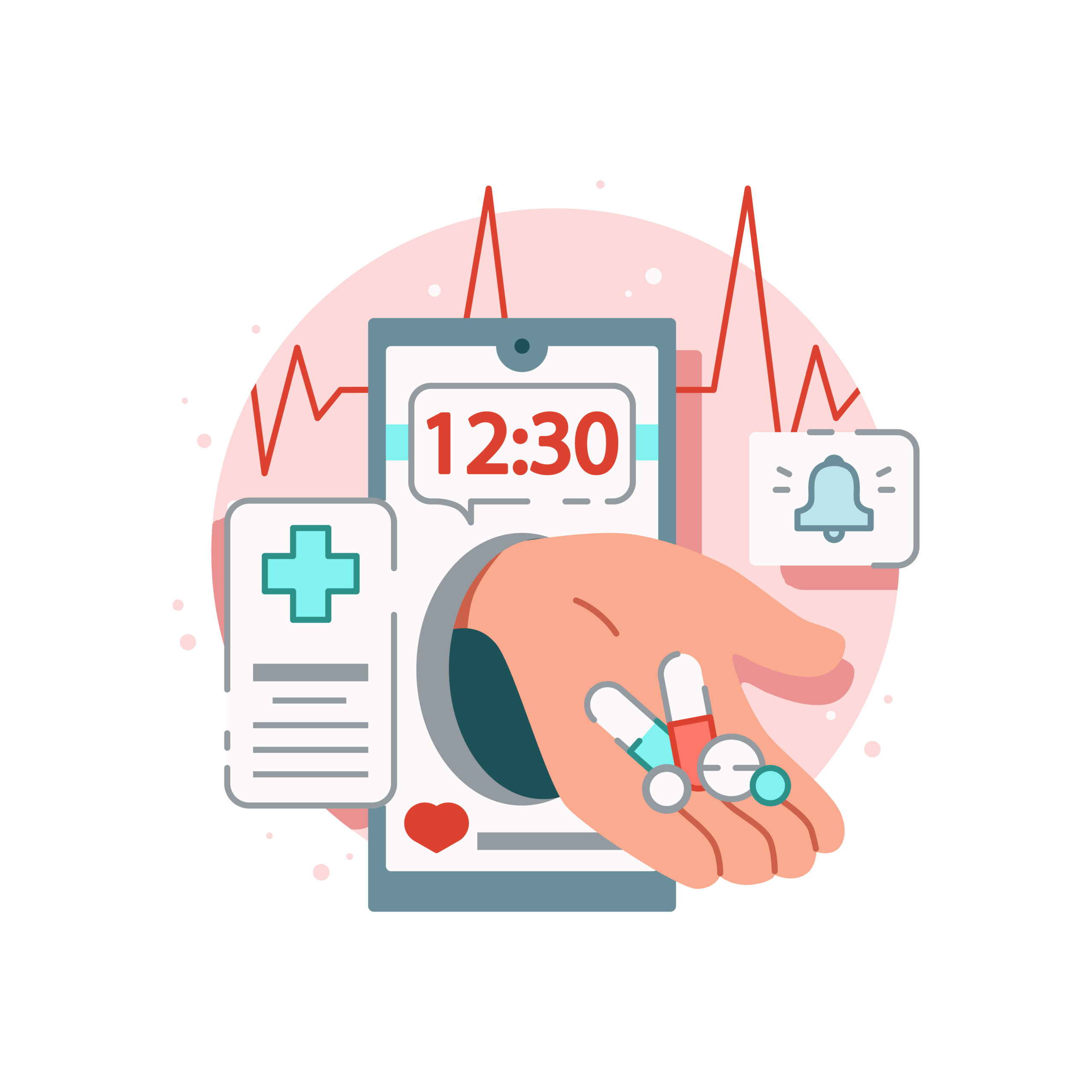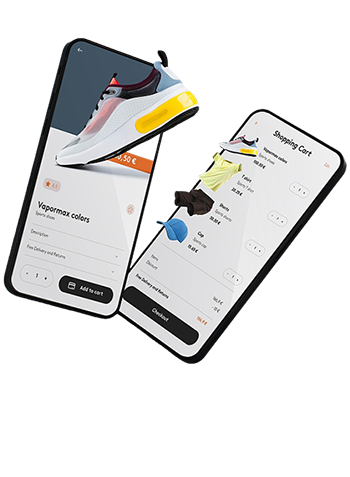Full dedicated
team for your project
We offer tailored, cost-optimized Mobile Apps development solutions
-
 Flutter
Flutter -
 Swift
Swift -
 Android Studio
Android Studio -
 Kotlin
Kotlin -
 Java
Java -
 React Native
React Native -
 Xamarin
Xamarin -
 Xcode
Xcode -
 Objective-C
Objective-C -
 Figma
Figma -
 Adobe XD
Adobe XD -
 Sketch
Sketch
Portfolio

Cryptocurrency Exchange
Cryptocurrency Exchange
Develop a mobile application that allows users to trade, buy, sell and securely store cryptocurrencies in one place. The app has to be simple, intuitive and safe, making any transactions accessible to various users: from beginners to experienced traders.
Develop a mobile application that allows users to trade, buy, sell and securely store cryptocurrencies in one place. The app has to be simple, intuitive and safe, making any transactions accessible to various users: from beginners to experienced traders.
- Core Features:
- Display real-time market data, cryptocurrency prices, interactive charts and trend analysis tools to help users make informed trading decisions.
- Implement wallet management to allow users to safely store, transfer and track their cryptocurrency holdings.
- Enable notifications to deliver real-time alerts on price fluctuations, market trends and changes to keep users updated on their investments.
- SDK Development:
- Build a modular SDK for white-label solutions, including trading functionality, a reusable network layer and wallet management.
- Provide documentation for SDK integration by third-party clients.
- Security:
- Integrate biometric authentication and end-to-end encryption for sensitive data.
- Implement 2FA and real-time monitoring for suspicious activities.
- Deep Links:
- Support direct navigation to specific app sections, such as trading pairs, wallets or purchase pages.
- Technologies for iOS:
-
- Languages: Swift
- Frameworks: UIKit, RxSwift, Alamofire
- Key Features:
- Modular SDK: Delivered a reusable white-label SDK with trading, wallet management and network functionalities.
- Real-Time Updates: Integrated WebSocket connections to provide live market data and notifications.
- Advanced Security: Implemented encryption, biometric login and 2FA for user safety.
- Successfully developed a secure and high-performance iOS cryptocurrency exchange app with modular SDK capabilities.
- Implemented real-time market insights and seamless trading functionality, enhancing user engagement and decision-making.
- Delivered a scalable white-label SDK, enabling easy integration for external businesses and future expansion opportunities.
- Project Manager (1)
- iOS Developers (2)
- Android Developers (2)
- DevOps Engineer (1)
- QA Specialists (2)

Selling landmarks via NFT
Selling landmarks via NFT
Develop an application that allows users to buy, sell and manage famous landmarks as digital assets using NFT technology. The app should feature an interactive map where users can explore and purchase landmarks. Finally, the application should be developed as a white-label solution, allowing it to integrate its core functionalities into other apps.
Develop an application that allows users to buy, sell and manage famous landmarks as digital assets using NFT technology. The app should feature an interactive map where users can explore and purchase landmarks. Finally, the application should be developed as a white-label solution, allowing it to integrate its core functionalities into other apps.
- Interactive Map Development:
- Implement map features such as filters, street and landmarks, status visualization (owned/for sale) and owner information display.
- Display a user’s owned landmarks in a structured list or as interactive markers directly on the map for easy access.
- Auction System:
- Enable NFT-based auctions for landmark ownership, providing a secure and transparent system for buying and selling.
- Internal Wallet:
- Build a fully integrated internal cryptocurrency wallet for managing transactions.
- SDK Development:
- Develop modular SDKs to support the app's main features:
- Map SDK: For interactive map functionality and dynamic updates.
- Marketplace SDK: For NFT auctions and communication with the blockchain marketplace.
- Wallet SDK: For handling digital assets, offering storage and integration with blockchain networks.
- Authentication SDK: For secure login, 2FA and user management.
- Develop modular SDKs to support the app's main features:
- User Profile Management:
- Allow users to easily view, track and manage their owned NFT landmarks.
- Provide a secure marketplace for selling landmarks while restricting direct peer-to-peer NFT transfers to ensure controlled transactions.
- Security Enhancements:
- Implement advanced encryption and biometric authentication to safeguard user accounts and digital assets.
- Enable two-factor authentication (2FA) for high-risk actions such as purchases, sales and account modifications.
- Languages: Swift
- Frameworks: SwiftUI, Combine, TCA, MapBox, Moya, GCD
- Interactive Map: Built using MapBox with support for filtering, searching and dynamic status updates.
- Blockchain Integration: Internal wallet with seamless handling of NFT transactions and auctions.
- SDK Modules: Modular SDKs for maps, marketplace integration and user authentication.
- Security: Advanced encryption, biometric login (Face ID/Touch ID) and 2FA for critical actions.
- Successfully developed an app that enables users to buy, sell and manage landmarks as digital assets using NFT.
- Built modular SDKs for interactive maps, secure wallet integration, marketplace functionality and user authentication.
- Enhanced security with advanced encryption, biometric authentication and multi-layered protection.
- Project Manager (1)
- iOS Developers (3)
- Backend Developers with blockchain expertise (2)
- DevOps Engineer (1)
- QA Specialists (2)
- UX/UI Designer (1)

Stock Exchange Application
Stock Exchange Application
Develop a mobile application for iPhone that allows users to monitor the stock market in real-time and manage their investments easily. The app must provide an intuitive and user-friendly experience for tracking stock prices, analyzing market trends, buying and selling shares and managing their personal investment portfolio with ease
Develop a mobile application for iPhone that allows users to monitor the stock market in real-time and manage their investments easily. The app must provide an intuitive and user-friendly experience for tracking stock prices, analyzing market trends, buying and selling shares and managing their personal investment portfolio with ease
- Design and implement a user-friendly UI to display stock market data in real-time.
- Integrate with stock exchange APIs to fetch up-to-date information.
- Enable users to track, manage and trade stocks within their personalized portfolio.
- Support secure and seamless transactions for buying and selling stocks.
- Develop interactive charting tools to visualize stock trends, performance and market analysis.
- Delivered a precise and user-friendly stock trading and portfolio management app.
- Implemented real-time updates and advanced analytics.
- Provided an intuitive UI for seamless portfolio management.
- Developed interactive and easy-to-use charting tools, enabling users to manage market trends and stock performance easily.
- Languages: Swift, JavaScript
- Frameworks: UIKit, Combine, CoreData, URLSession / RSocket, GCD
- Real-Time Updates: Integrated WebSocket connections to provide live market data.
- Interactive UI: Built dynamic, touch-enabled charts for data visualization.
- Security: Ensured secure payment processing and sensitive data encryption
- Project Manager (1)
- Business Analysts (3)
- iOS Developers (4)
- Android Developers (4)
- QA Specialists (2)

Pharma App
Pharma App
Develop a high-performance pharmaceutical application exclusively for iOS, designed to help users find detailed information about medicines and locate the nearest pharmacy for purchase. The app must be scalable, capable of handling large-scale user traffic while ensuring a fast, intuitive and comfortable user experience.
Develop a high-performance pharmaceutical application exclusively for iOS, designed to help users find detailed information about medicines and locate the nearest pharmacy for purchase. The app must be scalable, capable of handling large-scale user traffic while ensuring a fast, intuitive and comfortable user experience.
- Enable users to search for medications by name, active ingredients or medical conditions.
- Provide detailed descriptions, usage instructions, dosages and possible side effects.
- Implement a real-time pharmacy search that shows nearby locations where the selected medicine is in stock.
- Enable users to filter pharmacies based on distance, availability and pricing.
- Ensure a fast, intuitive, and responsive UI, allowing users to quickly find information without delays.
- Optimize data processing to handle high concurrent user traffic efficiently.
- Build a scalable backend infrastructure capable of supporting millions of searches and real-time availability updates.
- Implement efficient caching and database indexing to enhance performance.
- Ensure secure data handling and protect sensitive user information.
- Project Manager (1)
- Business Analysts (3)
- iOS Developers (10)
- Backend Developers (6)
- QA Specialists (4)
- Languages: Swift, Objective-C
- Frameworks: UIKit, RxSwift, GCD, CoreData, Alamofire, Keychain
- Scalable Architecture: Designed reusable UI components with UIKit to handle varying layouts and data sources.
- High-Performance Search: Leveraged backend APIs to support advanced filtering and sorting with minimal latency.
- Asynchronous Operations: Used RxSwift to manage complex asynchronous workflows efficiently.
- Security: Integrated encryption for data storage and transmission to ensure compliance with local regulations.
- Delivered a high-performance app capable of handling large-scale user traffic with fast and reliable operation.
- Achieved modular UI design with reusable components, reducing future development overhead.
- Ensured compliance with healthcare standards and protected sensitive user data.
Let's build your App
How We Work
Pricing Model
-
Time & Material Model
Best for:
How It Works:
Pay only for the actual hours worked on your project
Project Duration: AnyBilling: Hourly-based invoicing -
Fixed-Price Model
Best for:
How It Works:
Develop your project with a predefined budget and cost certainty
Project Duration: 1-6 monthsBilling: Cost based on project estimates -
Dedicated Team Model
Best for:
How It Works:
Build a flexible team with the exact skills you need, working exclusively on your project.
Project Duration: From 1 monthBilling: Monthly fixed price
Frequently Asked Questions
What programming languages do you use for mobile app development?
We focus on modern solutions by predominantly using Swift for iOS development and Kotlin for Android development. At the same time, we remain flexible and continue to support traditional approaches using Objective-C and Java when needed, ensuring the best fit for every project’s requirements.
What iOS development frameworks and tools do you use?
We seamlessly work with both Apple’s native libraries and third-party services. We create scalable, high-performance applications that perfectly meet your expectations. We’re used to implement Combine for reactive programming, SPM for dependency management, and URLSession or Alamofire for networking. Our process is powered by industry-leading tools such as Xcode, Instruments, XCTest and CI/CD integrations to ensure a seamless workflow and exceptional app quality.
Talking about user interface development, we specialize in developing flexible, reusable components that adhere precisely to Apple’s Human Interface Guidelines (HIG). Our primary frameworks, UIKit and SwiftUI, enable us to craft adaptive and high-quality user interfaces.
Additionally, we maintain support for legacy approaches such as Storyboards and Xibs. And we seamlessly integrate third-party frameworks like Lottie and SnapKit to further enhance functionality and visual appeal.
Do you use reactive programming in app development?
Yes, we do use reactive programming in our app development. We favor Combine for its native integration, active development and strong support from Apple, which provides us with numerous benefits for building responsive and future-proof apps. At the same time, we also actively work with RxSwift, leveraging its rich ecosystem and proven track record in powering many successful applications.
How do you handle concurrency in iOS development?
We employ all modern concurrency approaches to address multitasking challenges in our apps. Implementing such solutions as GCD, NSOperation and Async/Await, we select the optimal tool for each specific task to ensure efficient multithreading and seamless app performance
What mapping and location services do you integrate in mobile apps?
We have extensive experience with all modern mapping solutions. Depending on your project’s specific requirements, we select the most suitable service that perfectly aligns with both business needs and the regional context where your app will be deployed.
Whether it’s MapKit, GoogleMaps, YandexMaps or even MapBox, we integrate the ideal solution to provide precise navigation and location tracking.
How do you handle networking and API integrations?
We work with a wide variety of networking tools and libraries, including REST (URLSession, Alamofire, Moya), WebSocket (RSockets), GraphQL (Apollo), XMPP, RTC and RPC to ensure efficient and secure communication between apps and external services.
What tools do you use for dependency management?
For dependency management, we use CocoaPods and SPM (Swift Package Manager), ensuring seamless integration of external libraries and packages.
How do you ensure app quality and testing?
We prioritize app quality by utilizing comprehensive testing frameworks like XCTest, XCUITest, Quick/Nimble for testing and Xcode Instruments for performance measurement and memory leaks detection. We aim for over 70% code coverage to ensure error-free apps.
Do you use CI/CD (Continuous Integration / Continuous Deployment)?
Absolutely. We’ve built CI/CD pipelines that automate every stage of our development process: from testing and building to deployment. By integrating tools like Jenkins or GitHub Actions, Bitrise and Fastlane, we streamline our workflow, ensuring delivery of app releases on time.
What utilities and tools do you use for code quality?
We employ industry-leading code quality tools to maintain a clean and scalable codebase. By using SwiftLint to enforce best coding practices and SonarQube for comprehensive static analysis, we catch potential issues early and ensure our code meets the highest standards throughout the development process.
What architectural approaches do you use in app development?
We follow industry-standard architectural approaches, including MVVM+C, MVP+C, VIPER, Clean Swift and Redux. We even have experience developing our own unique solutions when needed. We choose architectural strategy for each project, based on specific requirements for scalability, maintainability and performance.

